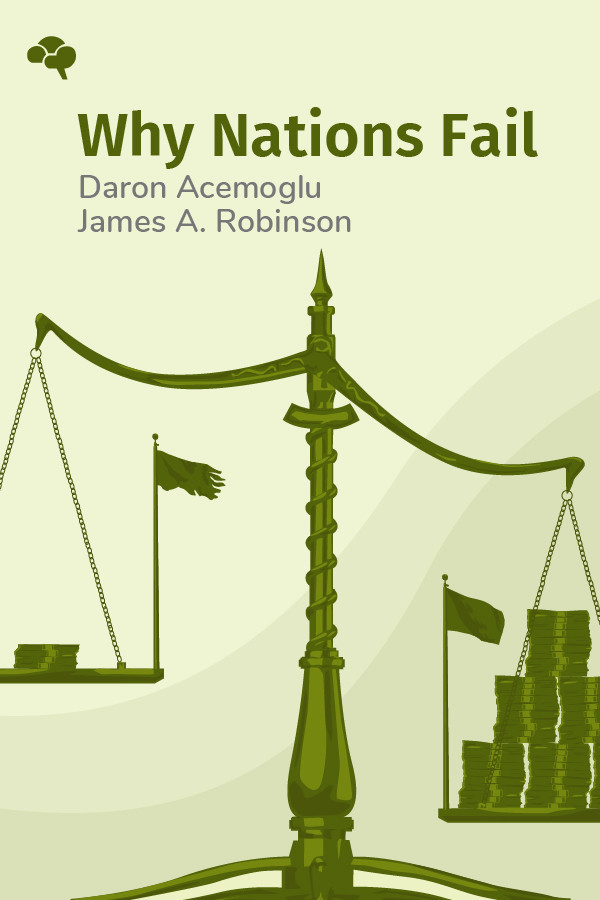Key Insights From:
Why Nations Fail: The Origins of Power, Prosperity, and Poverty
By Daron Acemoglu, James A. Robinson


Key Insights From:
Why Nations Fail: The Origins of Power, Prosperity, and Poverty
By Daron Acemoglu, James A. Robinson
What You'll Learn:
How do we make sense of the disparity between the rich and poor? Why do some nations prosper and others fail? Daron Acemoglu and James A. Robinson argue that the common explanations of geography, culture, and ignorance are all inadequate. The answer to the question of inequality is found in institutions. Some nations have political and economic institutions conducive to growth while others do not. Why Nations Fail tells us why popular hypotheses don’t work and why institutions are the true difference makers.
Key Insights:
- Scholars have failed to develop a theory that adequately accounts for the successes and failures of nations.
- The view that people in tropical climates tend to be less prosperous fails to explain global wealth inequality.
- The view that differing ethics or values mean differing levels of prosperity is also contradicted by the evidence.
- The theory that ignorant rulers cause poverty implies a tidy but misguided solution to the problem.
- Inclusive institutions create prosperity and minimize inequality.
- Extractive institutions lead to poverty, inequality, and instability in nations.
- The American South became far more prosperous after its political and economic institutions became more inclusive.




